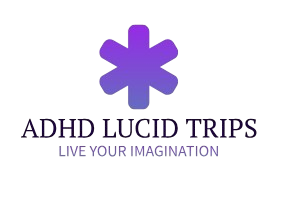ADHD
What Are the Best ADHD Medications and How to Take Them
What Are the Best ADHD Medications and How to Take Them
An effective ADHD medication guide can transform how you or your loved one manages the condition. ADHD, or Attention-Deficit/Hyperactivity Disorder, affects focus, impulse control, and energy levels. Medications are often the first line of treatment, but finding the right one — and using it correctly — is essential.
This guide breaks down the best ADHD medications, how they work, how to take them safely, and what complementary strategies enhance results.
Understanding ADHD and the Role of Medication
ADHD is a neurodevelopmental disorder that affects both children and adults. It’s characterized by symptoms like hyperactivity, distractibility, and difficulty with organization and impulse control.
While lifestyle changes, therapy, and structured routines help, most patients benefit significantly from the right medication. That’s where a trusted ADHD medication guide can make all the difference.
ADHD Medication Guide: Stimulants Explained
Stimulants are the most prescribed and researched medications for ADHD. They improve symptoms in around 70% to 80% of people by boosting dopamine and norepinephrine levels in the brain.
Methylphenidate-Based Stimulants
-
Ritalin (IR/LA)
-
Concerta
-
Daytrana (patch)
These are often used for children or those new to ADHD treatment due to their predictable onset and short duration.
Amphetamine-Based Stimulants
-
Adderall (IR/XR)
-
Vyvanse
-
Dexedrine
These offer longer-lasting symptom control and are frequently prescribed to adults and teens.
Pros:
-
Quick symptom relief
-
Multiple dosing options (immediate or extended-release)
Cons:
-
Can cause side effects like insomnia, appetite loss
-
Not suitable for everyone (e.g., people with high blood pressure)
ADHD Medication Guide: Non-Stimulant Options
Not everyone responds well to stimulants. That’s where non-stimulant medications come into play, especially for people with coexisting conditions like anxiety, tics, or sleep issues.
Atomoxetine (Strattera)
-
Increases norepinephrine
-
Takes 2–4 weeks to show results
-
Lower abuse risk than stimulants
Alpha-2 Agonists: Clonidine (Kapvay) and Guanfacine (Intuniv)
-
Originally used for blood pressure
-
Help regulate mood and impulsivity
-
Often used in combination with other treatments
These medications form an essential part of any complete ADHD medication guide because they offer alternatives when stimulants aren’t viable.
ADHD medication guide
How to Use ADHD Medications Safely
Even the most effective ADHD medication won’t work well if it’s not taken properly. Here’s how to ensure safety and maximize results:
1. Follow Doctor Instructions
Your doctor will likely start you on a low dose and adjust slowly. Don’t make changes on your own.
2. Take at the Right Time
-
Short-acting meds: May require 2–3 doses per day.
-
Extended-release meds: Taken once, usually in the morning.
-
Non-stimulants: Often taken once or twice daily, sometimes with food.
Avoid late-day stimulant doses to prevent insomnia.
3. Watch for Side Effects
Common issues include:
-
Insomnia
-
Headaches
-
Irritability
-
Loss of appetite
Always consult your doctor if side effects interfere with daily life.
4. Don’t Mix with Alcohol or Unapproved Substances
Especially with stimulants, alcohol can increase cardiovascular risks and reduce medication effectiveness.
Lifestyle Tips to Complement This ADHD Medication Guide
Medication alone is rarely enough. The most successful ADHD management plans combine medical treatment with supportive habits and tools.
Sleep Hygiene
Create a consistent sleep schedule and avoid screens at night.
Nutrition & Hydration
High-protein meals and lots of water support brain function and medication performance.
Mindfulness & Exercise
Both reduce anxiety and increase dopamine naturally — making medication more effective.
Lucid Dreaming and ADHD
Some people with ADHD explore lucid dreaming techniques to help reduce stress, improve self-awareness, and calm nighttime restlessness.
You can find detailed guides and tools to support this at ADHDLucidTrips.com — your trusted source for natural focus and sleep optimization.
ADHD medication guide
Common Myths Debunked: ADHD Medication Guide Insights
Let’s clear up some misconceptions that often scare people away from medication.
“ADHD meds are addictive.”
Fact: When used as prescribed, stimulant meds are safe and rarely lead to dependence.
“They’ll change your personality.”
Truth: The right medication should help you feel more like yourself, not less.
“You’re on it forever.”
Reality: Some take meds for a few years during high-demand periods like school or career changes.
These myths highlight why a well-rounded ADHD medication guide is so valuable — it helps you make informed decisions.
Final Thoughts and Expert ADHD Medication Guide Tips
Finding the best ADHD medication can be life-changing. Whether you respond better to stimulant options like Vyvanse or non-stimulants like Strattera, your journey will be more successful with the right guidance.
Here’s a recap of what you should remember:
-
Work with a doctor to find the right type and dosage.
-
Combine medication with sleep, diet, and mindfulness.
-
Stay patient — adjustments are normal.
-
Explore non-medical tools for clarity and creativity.
For more resources on ADHD-friendly routines, natural brain supplements, and lucid dreaming support, explore ADHDLucidTrips.com — your go-to ADHD medication guide and clarity toolkit.

